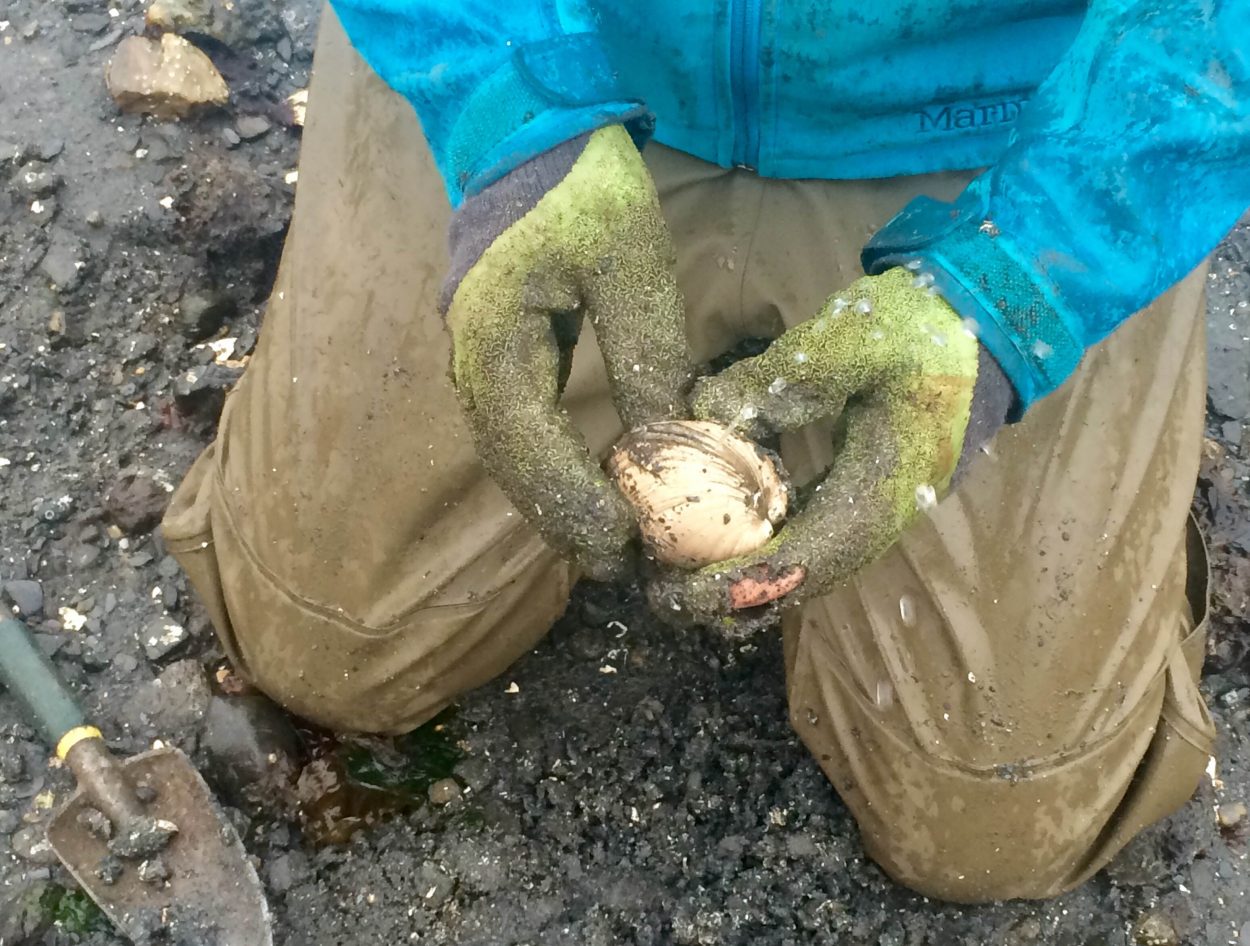Shellfish testing revealed clams and cockles on some Wrangell beaches do not contain abnormal amounts of heavy metals or other contaminants, according to a study released by the Wrangell Cooperative Association earlier this month.
The WCA won federal funding to test shellfish in April through its Indian Environmental General Assistance Program (IGAP). The tribal government wanted to make sure the popular local food source was safe after a sinking tug boat leaked fuel in the area last year.
Volunteers collected shellfish from three beaches along Zimovia Strait, 4 to 5 miles south of Wrangell, because those are popular places for personal-use shellfish harvesting. They also thought those beaches may be more susceptible to the effects of nearby industry.
Chris Hatton is the Wrangell tribe’s IGAP environmental technician.
“We were looking for anything that would be a threat to subsistence users,” Hatton said. “What we were looking for specifically were arsenic, cadmium, copper, lead and mercury, as well as diesel-range organics and residual-range organics.”
Hatton said the shellfish samples contained concentrations of contaminants that fall in normal ranges for the region, and tests detected no mercury.
“Though I think it’s worth mentioning that it was one sort of snapshot in time. That was one day in April at a certain tide cycle, and as many people hear in the news there are different harmful algae blooms and different temperature changes with the ocean that can affect things quickly or change things,” Hatton said. “So we encourage everyone to do their own research and just be aware.”
Hatton added the results are specific to the beaches that were tested near Shoemaker Bay Harbor and Shoemaker Loop. But this study gives Wrangell baseline data that can be used in the future to monitor changes in contamination of shellfish.
The overall results of the study do not raise immediate concerns, but there may be some additional shellfish testing for lead, copper and diesel-range organics in the future.












